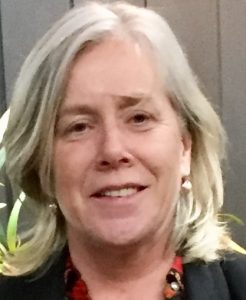 By Ann Farrell, Career Coach, Sli Nua Careers
By Ann Farrell, Career Coach, Sli Nua Careers
I know I should ‘talk myself up’ – but how?
This week, we received the following question from a reader: “I am not good at ‘talking myself up.’ I am shy and bashful by nature. What training coaching/strategies would you deploy to help me get around this problem?” – MK, email.
Unwillingness or inability to “talk myself up” is a very common problem for candidates. People can be very good at doing their jobs but, when asked to explain why they are good, or, indeed, what their actual skills are, they can struggle, writes Ann Farrell, Career Coach.
So, MK, you are not alone. We asked three of our coaches to give their opinion, and here is what they wrote:
Arthur Geraghty:
I believe it is very important to utilise positive reinforcement techniques to help candidates to get to a point where they can talk themselves up. This can be achieved by guiding them through a process where they identify their skills and career background/history, and have a clear understanding of how they match the criteria for the role. Once they know that, they must then really believe that what they are offering the employer is exactly what the employer is looking for – if you don’t have that self belief, there is no point going to the interview. Without that belief, your interview will not convince the employer.
Secondly, it sounds simplistic, but it is crucial to let the candidate know that if they don’t sell themselves, nobody else will. It is as simple as that. You would be surprised how many candidates do not realise that that responsibility lies with them – but, once they cotton on to it, they talk themselves up much more effectively.
Having a structure to your answers – such as the STAR (Situation, Task, Action and Result) Method – is excellent too. There are many other methods. It takes some of the uncertainty out of the interview and builds confidence.
Fintan Dunne:
My idea is to get the candidate to focus on the kernel of the job. All eyes should be on that. Break down the job specification into points and prepare to answer accordingly. In this way, the interview becomes easier to approach. The candidate is now focusing on each competency or piece of experience, step-by-step, without allowing themselves to the overwhelmed by the full interview.
In my experience, shy people need a structure they can believe in, a structure that will carry them through the interview and that will conceal, rather than expose, their shyness. Many people present for interview without such a structure in place and they have nothing to fall back on – that can contribute to their anxiety beforehand. Structure alleviates much of that.
Patricia Maloney:
Mindset is crucial. I start my sessions with telling clients that they have approximately 40 minutes to tell me (as a de facto interviewer) how good they are for the job. I remind them that if they don’t tell the panel then more than likely they will come away from the interview feeling deflated.
The next candidate will not be shy about telling their good stories. An interview is a competitive environment and you must fight your own corner. The opposition might not be in the room at the same time but you have to presume that they will give an excellent account of themselves – therefore you must do the same for yourself. You owe it to yourself.
Practice makes perfect. Practice builds confidence.
Ann Farrell is a Career Coach with Sli Nua Careers. You can read more about her, and make a booking HERE for Interview Training and Mock Interviews.






